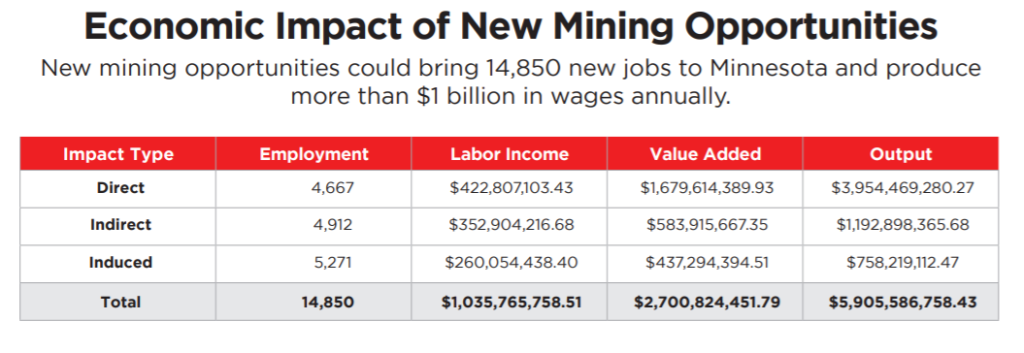Biden Cabinet Picks Bode Poorly For Twin Metals, Minnesota’s Economy
The Biden administration’s selection of Tom Vilsak for Secretary of Agriculture and U.S. Rep. Deb Haaland (D) of New Mexico as Secretary of the Interior bode poorly for the proposed Twin Metals mine, according to a recent article in MinnPost. The new administration’s stance on the project would also be bad for the entire state’s economy, which would benefit tremendously from expanded mining.
There is good reason to believe that Twin Metals will face political obstacles from the new administration. Vilsack was the head of Agriculture when the Obama administration incorrectly canceled the mineral leases for Twin Metals in the last days of the Obama presidency, and Congresswoman Haaland co-sponsored legislation with Minnesota Congresswoman Betty McCollum (D- St. Paul) to permanently ban copper, nickel, cobalt, and other precious metals in the Rainy River Watershed.
Prematurely banning mining in Minnesota’s portion of the Rainy River Watershed before state regulatory agencies get a chance to evaluate a proposed mine plan is politics, not the scientific process. Unfortunately, writing off an entire project that would create 750 direct jobs before evaluating any of the scientific data collected in their environmental review is a disservice to the people of Northern Minnesota who support mining as a way to generate thousands of high-paying jobs.
American Experiment’s new study, Updating Prosperity, determined that developing all the copper, nickel, cobalt, and titanium resources with publicly-available resource estimates in Minnesota would create up to 14,850 new jobs with annual payrolls exceeding more than $1 billion per year.

Expanded mining would also produce nearly $370 million in new state and local tax revenues every year. This sum would be an enormous help to plugging the budget deficit that will likely be left by COVID-19. It would help struggling local governments raise the revenue they need to continue providing services to their residents.
Furthermore, the Twin Metals mine is located on School Trust Fund land, meaning that mining from the site would generate more money for every school child in Minnesota.
Iron ore mines in the state have contributed more than $1 billion to the state’s school trust fund land and account for 95 percent of its revenues. In 2020-2021, the trust fund will have distributed $37 million, or roughly $43 per student. However, the Twin Metals mine could add another $2.5 billion to the trust fund, increasing the potential spending to nearly $150 per student per year.
Permanently banning the Twin Metals project isn’t “following the science.” It is subverting it for political purposes. Such disregard for data and due process will deny good-paying jobs to thousands of hardworking Minnesotans and provide less funding to Minnesota schools, all while making the United States more dependent upon foreign countries to provide the minerals we use every day.